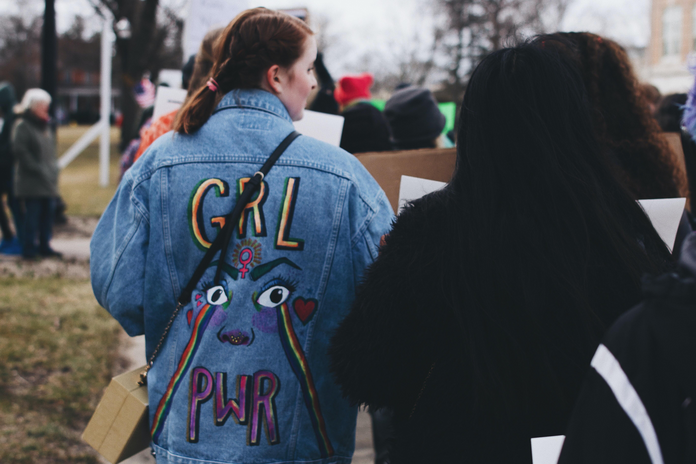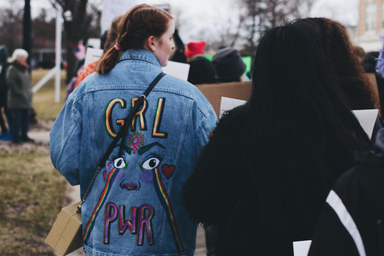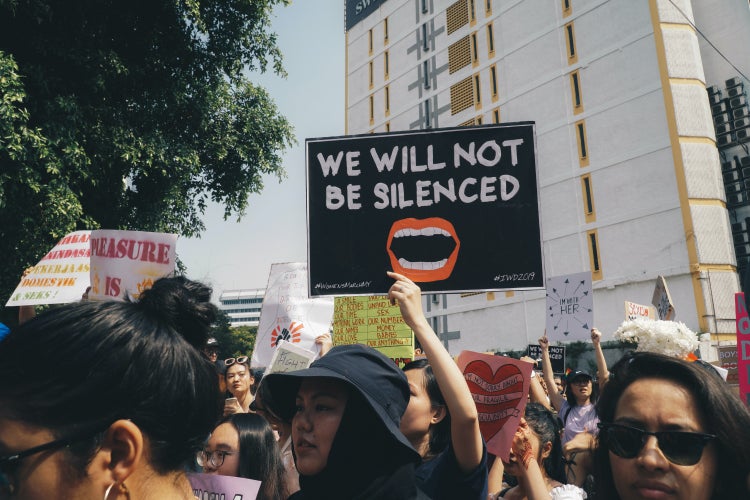After spending my whole junior year contemplating if majoring in Women, Gender, and Sexuality Studies (or WGSS) would be the move, I bit the bullet and added it as another major this past summer.
The road to this decision wasn’t that much of a spur of the moment. I was dabbling in a few womenʻs studies courses here and there early on in my undergrad. But, I soon realized that those were the only kind of courses I genuinely understood and liked. Then, I asked an advisor if majoring was possible, and it would be only if I finished off my other major in the summer before senior year. So, I did just that. I even found myself interested in how it related to my final undergrad classes in Psychology. My last Cross-Cultural Psychology class spurred opportunities to study on patterns concerning disparities in the world such as the gender roles in between Collectivist and Independent cultures. It was safe to say that all the signs were pointing to the major being do-able from the get-go for me.
With that being said, here are my thoughts of it so far.
It represents more than Women’s rights.
Unlike it’s original title at my school (a.k.a women’s studies), it represents all those oppressed by discrimination, such as racial minorities and the LGBTQ+ community, in addition to women. But there is conflict with different colleges about changing their titles for it. The pattern of changing titles entirely into gender studies eliminates the representation of other important issues such as the ones stemming from race. No matter what name it carries, there’s an importance that not everything is one-sided, but it’s actually intersecting.
Issues in Women’s Studies are intersecting…like literally intersecting with everything.
Intersectionality is the main gist for my Feminist Theory class. Coined by Kimberlé Crenshaw , it is the term for how someone’s identities including but not limited to race, sexuality, gender, religion, and disabilities, combine altogether into very complex discrimination. You would always have so much information to go through while studying Women’s Studies because of this. Anything, and I really mean anything, like Beyonce’s Lemonade album and visual, can show issues that allow us to challenge and identify different levels of discrimination. It’s important to note that there’s no room to be a bystander in this realm of study, because there’s always a part of responsibility for everyone in social conflicts.
It Poses an Important Mantle for the Next Generations
A saying I’ve heard in Women’s Studies classes is that “personal is political.” By taking up this figurative mantle, you’re basically all in for advocating equal rights in society. Women’s Studies is a somewhat new area of study. Studying it under any capacity, whether as a major, minor, or for a certificate, provides us knowledge that we as a new generation of Women’s Studies practitioners get to use to change our future. We’re given front-row seats of real-time change with how applicable the lessons necessary to learn from history are to now and the future. The change however starts with learning about ourselves.
It Affirms Who We Are as Equals In An Unaccepting Society
At the beginning of one of my classes, ice breakers were typically having other WGSS majors/minors/certificate aspirers answer what got us into studying it. A lot of the responses would be about how validating and studying topics about sexism, racism, and what sex is for us. Coming from all kinds of backgrounds, we all have different opinions on how society views these aspects. Studying WGSS pretty much entails that identities ignorantly deemed as deviating from the “norm” such as queer and transgender folk are valid. It significantly affirms the oppressed from the practices of colonization by spotlighting issues that have been historically impacted and are still undermined today.
Also, I find that the studies’ view on sex are quite positive. For example, some of my Sexuality courses teach us that different areas of sex is natural and A-okay. It brings us to talk about how kinks were actually quite healing and sometimes asexual, and how sexuality can’t be categorized as just a biological thing that can be changed by tactics like conversion therapy. Hearing these things show that anything traditionally stigmatized from society are really just aspects that aren’t educated on properly.
Studying WGSS eliminates the societal emphasis on pondering what is “normal” or not beyond sex. In regards to what’s “normal” to major in, some people have said that it was pointless. Whenever my mouth let out the name of Psychology, I sometimes get a sigh of relief from people suggesting that assumed pointlessness of WGSS is canceled by a “true major”. It’s not up for what some people have to think, and it’s not a risk to major into something I love. I’ve learned that studying WGSS completes a missing piece in me that allows me to understand the world a little more than I was able to before, and it’s an amazing opportunity I could have ever given myself.



